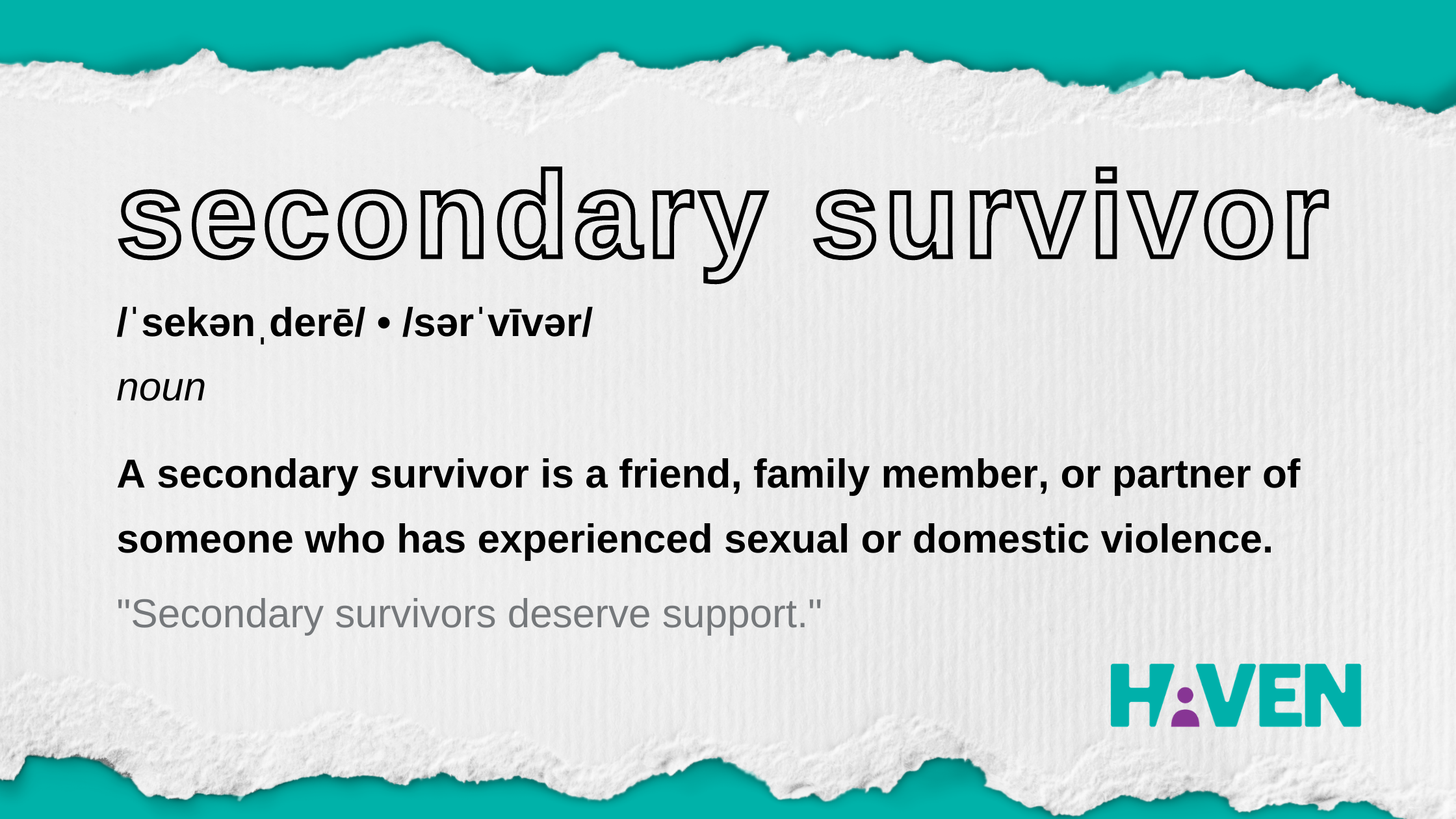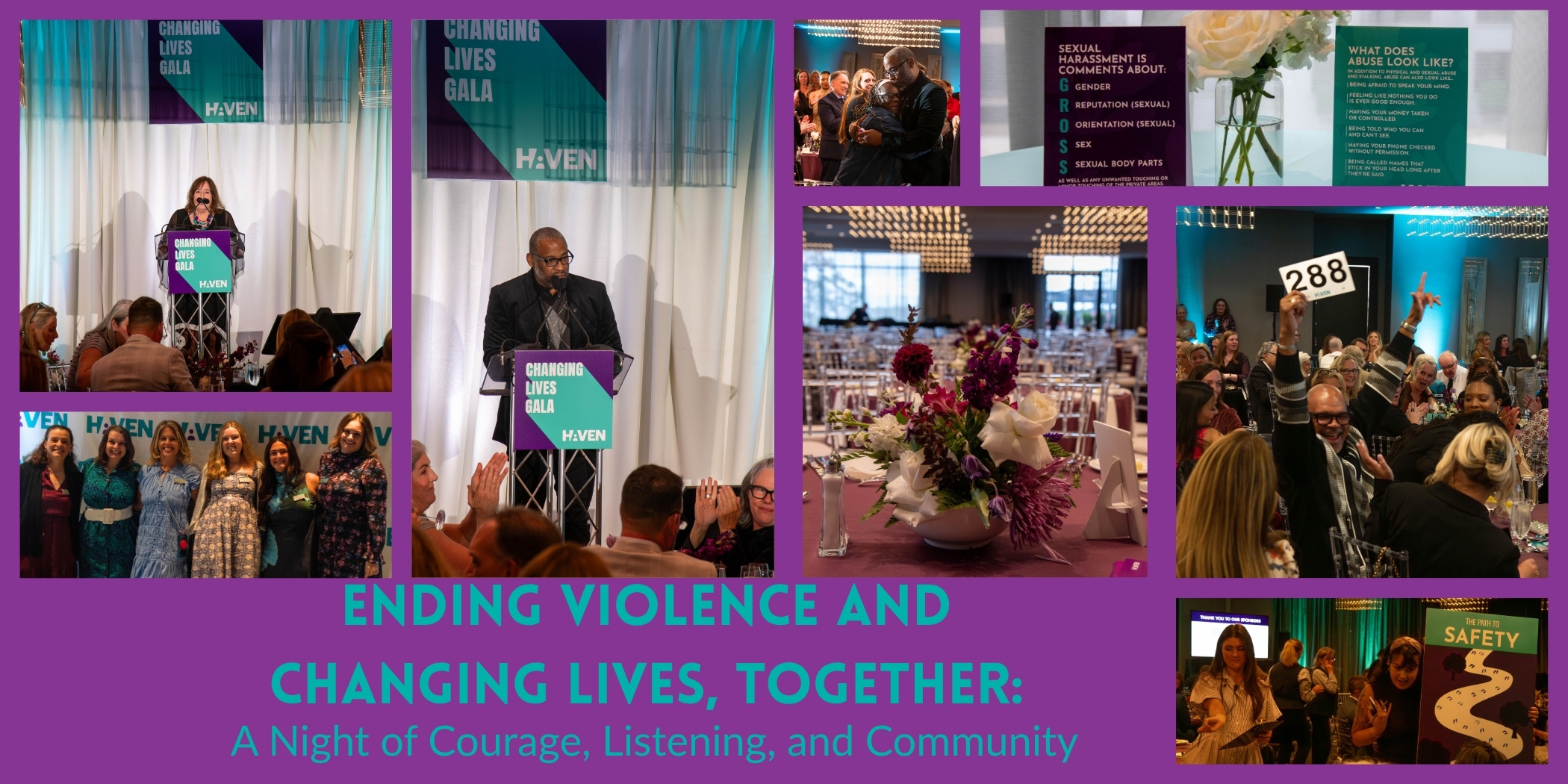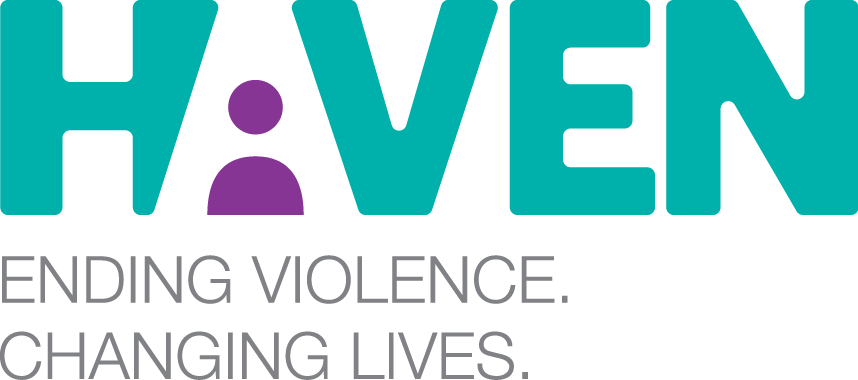
Secondary Survivors Deserve Support
- HAVEN Staff
- May 28, 2021
- Supporting Survivors
- 0 Comments
HAVEN helps everyone affected by domestic violence and sexual assault.
In edition to supporting survivors throughout Southeastern New Hampshire, HAVEN supports secondary survivors. If you are supporting a loved one who is healing from a traumatic event, HAVEN is here to support you too.
A secondary survivor is anyone emotionally affected by the assault. Who can be secondary survivors?
- Secondary Survivors can be:
- Partners.
- Parents.
- Friends.
- Siblings.
- Children.
- Work colleagues or acquaintances.
- First responders to the crime may be emotionally affected by the event and can be considered secondary survivors.
If you identify as a secondary survivor, we are here to support you.
“How can I help my friend?” is a very common question we get from secondary survivors. We know you care about your loved one and you want to do your best to help them through a traumatic time.
BELIEVE and LISTEN.
Listening and believing a survivor’s experience is an important way to support a friend. There are many ways to help your loved one through a crisis. Your friend who has experienced sexual assault or abuse may want to talk about what happened and express their emotions. You can help by:
- Validating their feelings
- Reassuring your loved one that they are not to blame. It is not their fault they were sexually assaulted. The perpetrator made the choice to commit a crime. It does not matter what your loved one was wearing or drinking, what time they left their house or who they were with. No one deserves to be assaulted.
- Respecting their privacy. Do not push them to give more information or details. Remember that it is solely the survivor’s choice to report to the police or anyone else.
Encourage your loved one to create a safety plan.
Safety Planning is brainstorming ways to stay safe and reduce the risk of future harm. A safety plan can help a survivor reduce stress and fear. This can be an important step towards healing. Having a safety plan allows your loved one to take control of their well-being.
HAVEN advocates are available 24/7 to help survivors and their loved ones safety plan over our hotline. If speaking on the phone is unsafe or you and/or the survivor prefer to have increased privacy and anonymity; visit our website at havennh.org and click chat now at the top, righthand corner of the screen. Advocates are available on chat Monday-Friday from 9am-4pm.
Offer Support.
There are many other ways you can offer support:
- Offer childcare. Extra medical appointments, legal appointments, or court hearings can add to your loved ones feelings of overwhelm. Offering to watch their children or pets can allow them to focus on the steps they need to take to heal.
- Accompany them on routine errands. Regular everyday things may be more frightening to your friend. Offer to drive them to the store, school, work, or home to help them feel safe.
- Bring them to one of HAVEN’s offices. You can support your friend by offering to going with them to one of our offices to meet with an advocate. Please call ahead to schedule an appointment with your loved one.
To find out more ways you can help a loved one, please click here to read our blog post, “How to Help Someone Being Abused”.
HAVEN is here to support you too.
HAVEN is here to listen and help you through this process as a secondary survivor. Emotions can be triggered when a loved one discloses a traumatic event. You may have your own history of trauma that could reappear. This can affect how you feel about your loved one’s situation and how you respond.
- Common feelings secondary survivor experience:
- Shock and disbelief that this happened to someone you care about.
- Helpless or inadequate to help them.
- Anger and frustration.
- Fear or guilt.
- Impatience. Seeing someone you love go through this is difficult. Its okay to want things to move along quickly so they can heal.
Be aware of your own feelings about abuse and assault. Its normal to feel any of those emotions while supporting a loved one who has experienced violence. Sometimes the best help you can offer is to connect them with a trauma informed, confidential advocate. By sharing our hotline and chat information with that person, you are able to connect them to HAVEN’s support services and resources.
Put on your oxygen mask first. It is okay to take care of yourself first. By taking care of yourself, you are able to best support your loved one. We encourage you to reach out to HAVEN or your local crisis center to process your experience. HAVEN’s confidential support is available for secondary survivors process their thoughts and emotions around their loved one’s abuse.
Ask Questions. Get Support. Reach out.
HAVEN’s hotline is FREE, CONFIDENTIAL, and available 24 hours a day. It is a support line and you do not have to be in crisis to call. We are available to help in any way you need. Whether its; to ask what it looks like to disclose to the police, what to say to your loved one, how to help a friend file a restraining order, or what it looks like to work with the Division for Children, Youth, and Families (DCYF). We are here to support you. Please remember that by asking questions and seeking support for yourself, you are already doing your part to help your friend.
HAVEN’s trained advocates are available 24/7. You can reach out by calling 603-994-SAFE(7233) and via chat Monday-Friday from 9AM to 4PM by clicking the “chat now” link on havennh.org.
We are just a click or a phone call away. HAVEN is here for you.
You Might Also Like

Lessons Learned While Interning at HAVEN

Ending Violence and Changing Lives, Together: A Night of Courage, Listening, and Community


